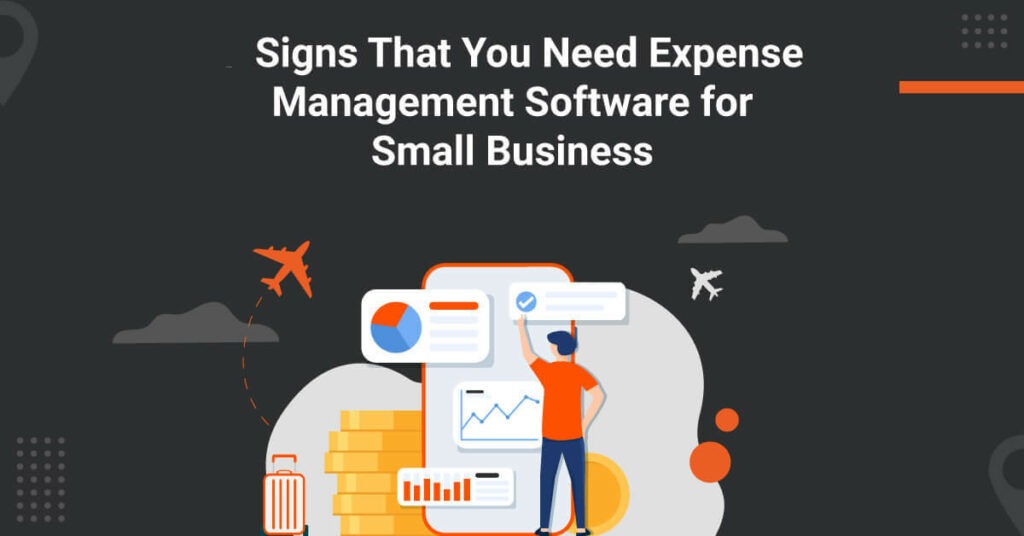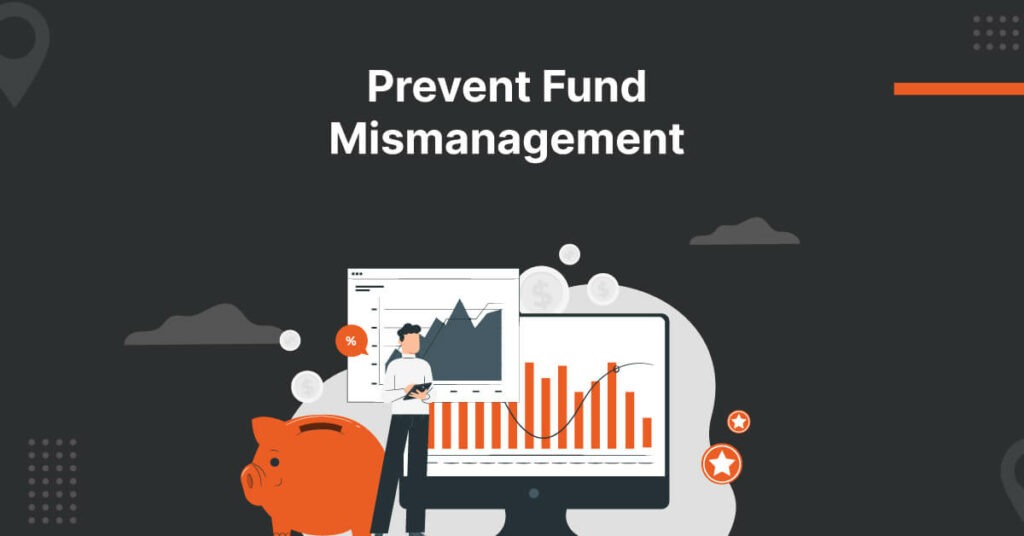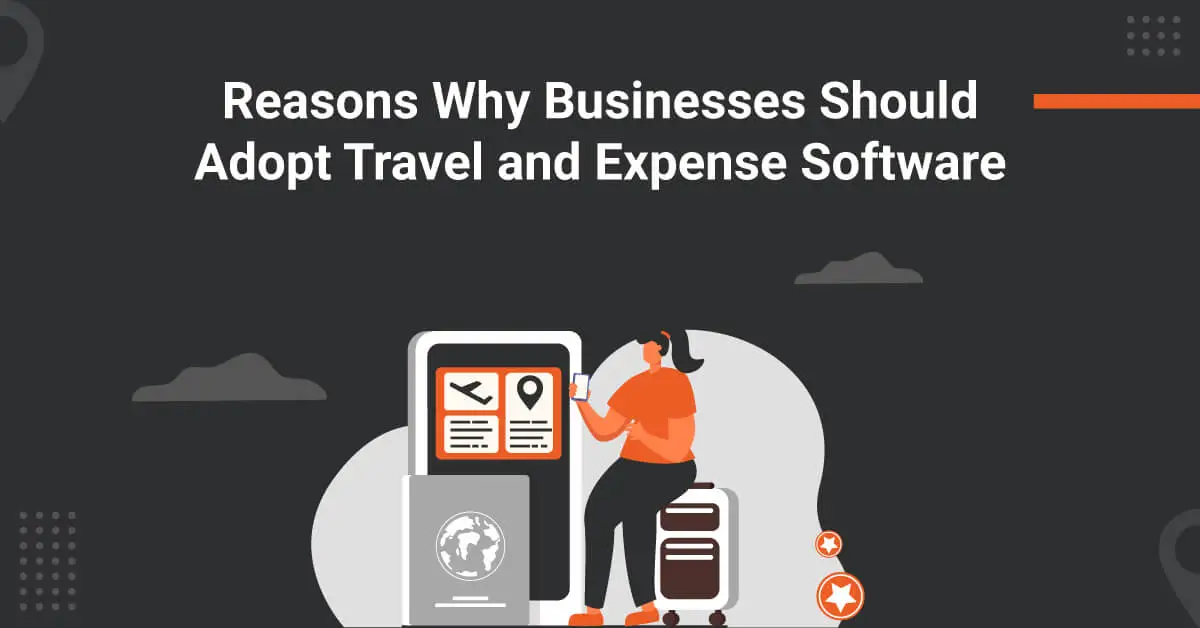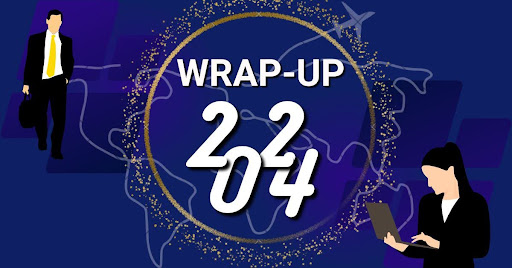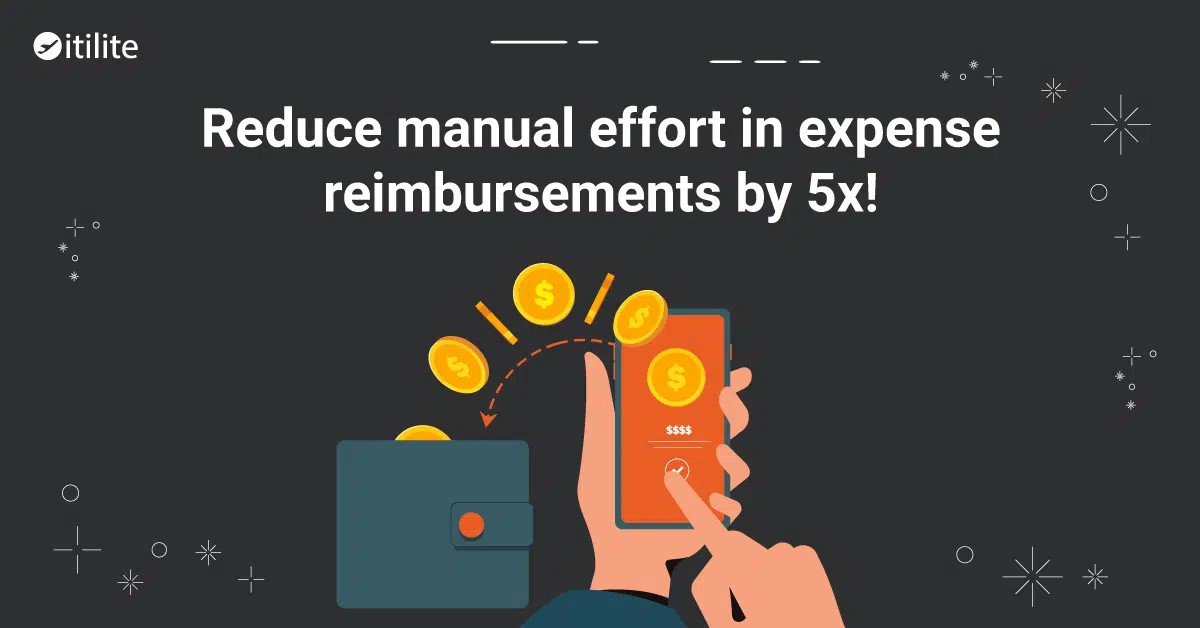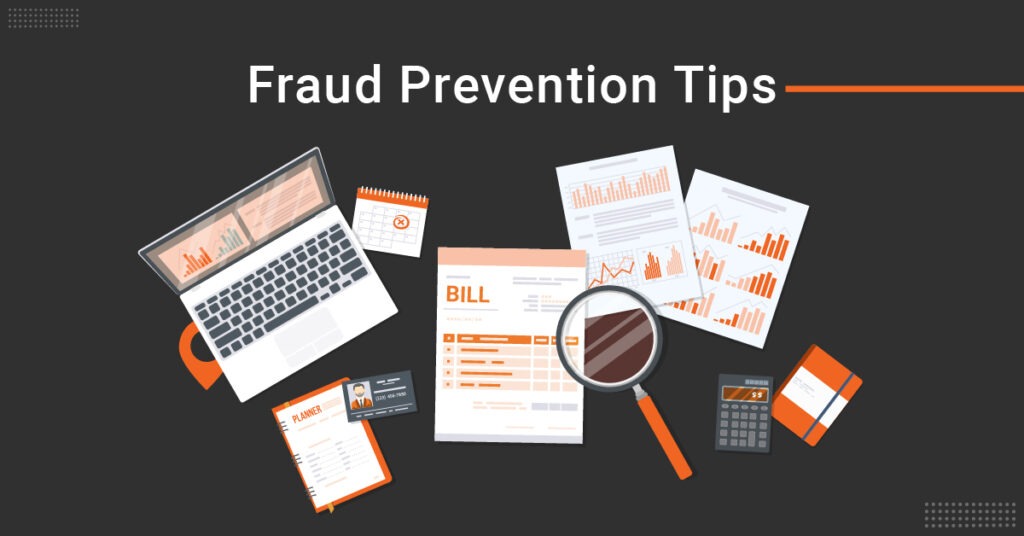
Expense fraud is a global problem affecting organizations worldwide. While travel spending (and travel expense report frauds) has reduced in the last 12 months due to COVID, the risk of expense fraud and violations has increased drastically.
Recent data by ACFE infers that organizations are facing a median loss worth $40,000 due to expense fraud. Much of that can be attributed to 2 factors – the emergence of new expense categories and an increasing number of first-time expense submitters. As companies started providing reimbursements for expenses such as home office supplies, home office internet, food delivery, physical and mental well-being allowance, etc., this presented an increased opportunity for fraud. Also, the transition to remote work drove an increase in “first-time spenders” – employees who were filing expenses for the first time and were unfamiliar with company policies, which likely led to unintentional expense filing errors.
Therefore, to track where or how employees are spending company money, it is essential to have a sturdy expense management mechanism that can prevent fraud. The mechanism should include a detailed policy, layered approval workflow, violation penalties to curb expense related fraud and a cloud-based, integrated travel and expense management software for proper implementation.
In this blog, we’ll discuss how a modern approach to expense management can help finance managers have greater compliance and track company spends in real time while minimizing expense report fraud. An integrated T&E management solution provides finance managers with features that can help them detect and prevent expense fraud. Read on!
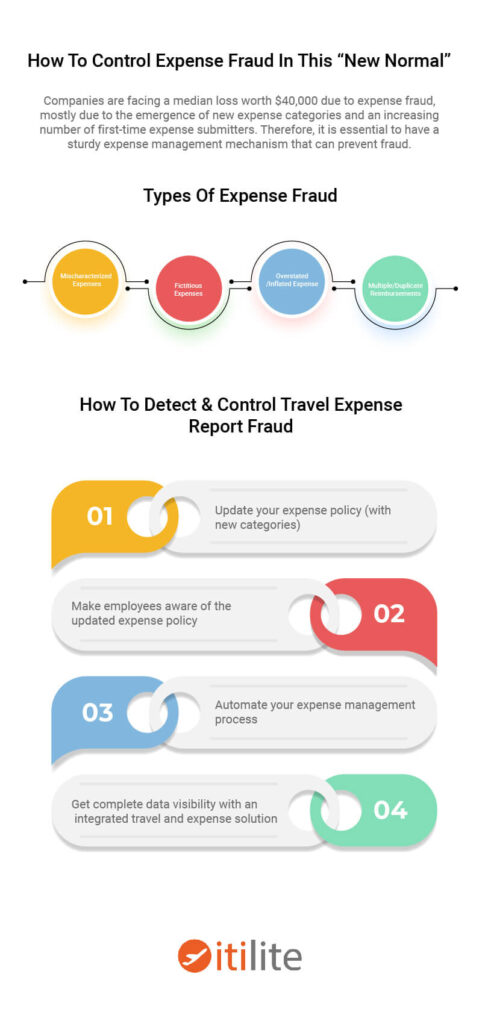
Types of Expense Fraud (Intentional and Unintentional)
Here are four types of expense fraud:
1. Mischaracterized Expenses
Claimed as business expenses, the expense reports submitted by an employee are all non-business related. Examples of mischaracterized expenses include claiming personal travel as a business trip which results in travel expense report fraud. Or, listing a meal with family as a “business development” meeting.
2. Fictitious Expenses
Employees, sometimes, may seek reimbursements for expenses that are completely fictitious. The event may not have happened and the receipts produced might be fake. For instance, claiming home office supplies that were never purchased or registration fees for workshops, etc.
3. Overstated/Inflated Expense
The employee may inflate the cost of an item and submit an expense reimbursement. For instance, let’s say an employee buys an item for $50 and submits an expense report claiming $150, by altering the invoice or receipt or a $2 ride becomes a $10 one.
4. Multiple/Duplicate Reimbursements
An employee may remit the same receipt for an item more than once. An example of such a claim would be using a corporate travel card to book flights and hotels for a business trip and then submitting a claim for reimbursement, for the same expense, committing travel expense report fraud.
How to Detect & Control Travel Expense Report Fraud
It is vital for any organization, big or small, to have a fraud detection and prevention system in place. The following steps can help you control fraudulent expenses:
1. Updating your Expense Policy (with new categories)
Due to extensive vaccination drives, COVID is slowly subsiding. So the world is adopting a hybrid working model instead of exclusively working from home. Therefore, you must update your policy to include all expense categories accommodating work from home setup such as home office supplies.
Moreover, you should also include the reimbursements for in-office expenses such as COVID test for business travel so your employees are aware of how much they can spend and they can control expense fraud.
Once employees are clear on what types of expenses are reimbursable or not, they can steer clear of all major expense policy violations. A well-defined policy can answer all doubts employees have regarding the expense reporting process. As a result, you will save oodles of time in not having to answer queries regarding reimbursements to employees and correcting violations.
2. Making Employees Aware of the Updated Expense Policy
Awareness increases policy adoption. Everyone within the organization should be aware of the updated expense policy. Therefore, sending your expense policy via email is not enough. The policy should be accessible to employees on easily accessible channels/platforms like slack, intranet, etc. Apart from this, it is equally important that you create awareness about the policy, via announcements in mini gatherings or by providing training sessions, especially when you are making a change in it. This will prevent them from filing out-of-policy expenses and curb unintentional fraud.
3. Automating your Expense Management Process
Automating your expense management system can help you prevent fraud in real-time and address policy compliance issues. Here’s how:
It makes expense filing easy for employees & eliminates manual filing errors
Make sure the expense management solution you choose has an easy-to-use mobile app to provide employees a better booking and expense filing experience. They should be able to scan and upload all the invoices on the go, eliminating all manual work. This will help with accurate expense filing further reducing the audit burden on the finance team. For companies managing business expenses manually, automation can save hours of manual bookkeeping and reconciliation efforts and reduce manpower costs as well.
You can Enforce Policy at the Time of Filing
If you are handling your expenses manually via spreadsheets, then there will be only a handful of employees who would refer to the policy before submitting the claims. Even if you have an automated system for managing expenses, most systems do not check the policy before submission. Once an expense report is submitted, the system displays to the finance teams if the claim is out-of-policy or a duplicate one. An advanced automated solution will send alerts for any out-of-policy filling, reduce unnecessary back and forth communication between finance teams and employees, and prevent any duplicate/weekend/predictive fraud from being filed.
You can Design a Thorough Expense Review and Approval Process
The expense management solution will help you streamline your expense approval processes with an audit trail, preventing not only excessive expenses but building a culture of accountability. A manager can review and/or approve expenses as and when they are reported. If an expense is out-of-policy, the manager can view the receipt that is attached to the report and then take a call on whether to approve it or not.
It Provides 100% Audit Capability Tather than Sampling-based Audit
Are you checking every expense submission or doing a sample-based checking? Even if you are checking all submissions, are you confident that you are 100% correct? An automated solution will help you audit all the submissions and define/expand the type of checks – duplicate, out-of-policy, weekend claim, etc. very clearly. Apart from checking, you should implement a system that consolidates travel and expenses and eliminates the need for audits by preventing errors. A fully integrated travel and expense management software solution can help you get the data of travel and other expenses at one place. Moreover, through such solutions, the data gets audited automatically to save time, reduce errors, and prevent travel expense report fraud.
4. Getting Complete Data Visibility with an Integrated Travel and Expense Solution
Around 70% of reimbursable spends are related to travel. However, most companies manage travel and expenses using separate platforms which creates data silos and increases the chances of travel expense report fraud.
So, if you connect your travel system to your expense system, you get complete visibility on the overall spends of the company. As data flows automatically from travel booking to reimbursement systems, there is no need for manual intervention for checks or any chance of errors. Complete data insights can help you make informed decisions and control fraud.
Take Steps to End Expense Fraud
As mentioned above, the changed behavior of employees during the pandemic demands new capabilities to ensure the prevention of expense fraud. Therefore, it’s time you use a goal-based approach for the evolution of your expense management setup.
At itilite, we help companies implement safeguards like automated fraud detection to prevent expense fraud before it occurs. Learn more about how you can mitigate risks arising from non-compliance easily by scheduling a free product demo today.



